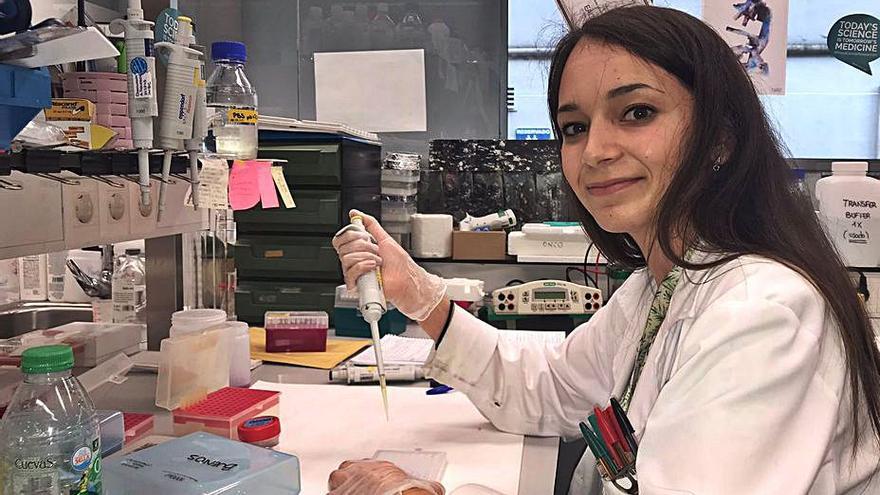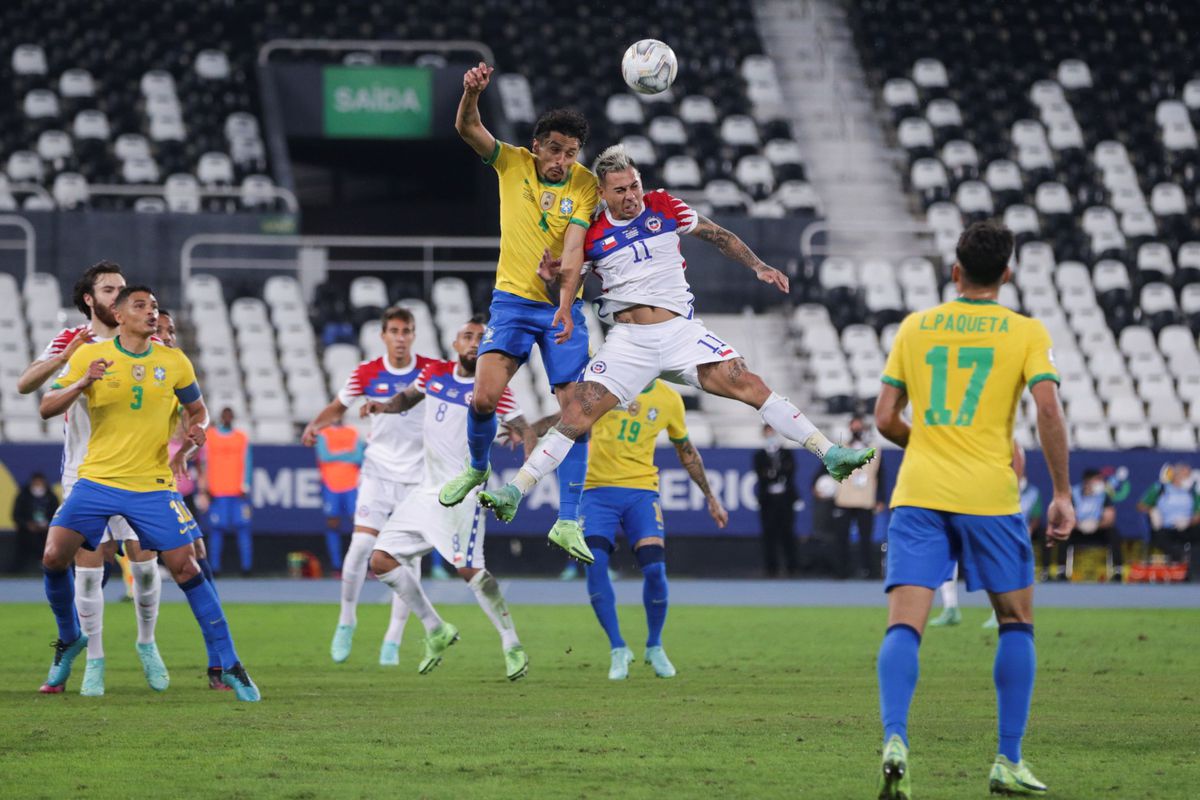They have vocation, talent and perseverance, but they lacked funding to investigate. Not being the number one in their specialties gave them stable contracts, sometimes not even paid. With the pre-doctoral grants from the Spanish Association Against Cancer (AECC) that were delivered this week in A Coruña, Andrea Rodríguez, Valentina González and Estíbaliz Díaz They have three years of tranquility ahead of them, but also of a lot of work, to advance in the fight against a disease that, they emphasize, “has come to us more or less close.”
Andrea Rodriguez He is 24 years old, he studied Biology at the University of León and, later, specialized in a Master’s degree in Biomedical Research at that academic institution. “While I was studying my master’s degree, a job offer came to the university from Biomedical Research Institute of A Coruña (Inibic). The one who is currently my boss, Angélica Figueroa, was looking for someone who would like to do the doctoral thesis with her research group, in the project that they were going to start, which is the one I’m working on now: the development of inhibitor drugs against metastasis. . I did the interviews with her on Skype, she liked my application and we decided that she would apply for one of the AECC pre-doctoral scholarships, although they did not give it to me in that call. I was first substitute. Literally, at the doors ”, he exposes. However, Dr. Figueroa secured private funding to hire Andrea for a year. “I came to A Coruña with the impulse of that first temporary contract and, during that period, it was when they finally granted me the AECC scholarship, which will allow me to develop my thesis in a stable way, until the end and with a decent financing ”, he underlines.
The project that Andrea develops at the Inibic is focused on metastasis, “The process by which the cells of a primary tumor are released and migrate, being able to generate other tumors in any part of the body”. “Our work arises after the identification of a protein that makes these cells have the ability to migrate. We start from the idea that if we isolate it, we can inhibit metastasis. My research is aimed precisely at the development of molecules that go directly against this protein, called Hakai, and prevent metastasis just before it occurs, specifically, in patients with colon cancer ”, he points out.
Andrea feels “very lucky” to have managed to win one of the AECC’s pre-doctoral scholarships, with an endowment of 66,000 euros, spread over three years, with the possibility of renewing one more. “In Spain there is an under-financing in science, especially with regard to human resources. There is money in projects, but the researchers who are going to develop them are not taken into account, so that, on many occasions, we have to do our work in precarious conditions. These grants from the AECC give us stability, allow us to continue with our work and, in addition, have a quick resolution. Because the problem with this type of call is that, many times, they take a year to resolve, or even longer. What does this imply? That a scientist joins a project, and during that waiting time, he does not get paid “, remarks this young researcher from the Coruñés Inibic, who argues that one of the consequences of this situation is the” brain drain “to other countries, a a problem that, he insists, “comes from far behind.” And not only that. “A lot of vocations are left by the wayside. Very talented scientists who end up throwing in the towel because they can’t afford to wait that long for a scholarship, ”he highlights.
Hopeful, though “realistic,” this researcher trusts that the COVID pandemic represents a “turning point” for society, but especially government leaders, “to begin to give science the value it has”, and that “that translates into greater funding.” In the current context, “it is urgent that the Pact for Science be approved once and for all.” “It has already been seen that financing science is an investment in the future. Without doing so, our country will always depend on third parties, as is happening to us now with vaccines against COVID, and we will never be pioneers in anything. And the saddest thing is that a lot of money is invested in training scientists, to later not give them that stability and that they have to go abroad ”, he laments.
Valentina Gonzalez She is 31 years old, studied Biology and Neuroscience in Madrid and is another recipient of the AECC pre-doctoral scholarships in A Coruña. He has been in Galicia for a little less than a year, where he moved from the capital to carry out his doctoral thesis, with Dr. Rosa Senarís, at the Singular Center for Research in Molecular Medicine and Chronic Diseases (CiMUS) of Santiago. “I used to work on neurodegenerative diseases, but the COVID pandemic and the death of my aunt last year from cancer changed my perspective a bit. They offered me this project, which linked neurobiology with cancer research, just at a time when this disease was touching me very closely, and I didn’t think about it. Science in Spain is, right now, a very complicated career, and without a vocation and a very strong personal motivation, it is easy to stay on the road ”, admits Valentina, very proud of the project that has just obtained the support of the AECC.
“We are studying cachexia, a disease that occurs very frequently in cancer patients, and is characterized by weight loss and a reduction in muscle mass and fat in the patient. This causes anorexia and weakness, and greatly reduces the effectiveness of cancer treatments and, therefore, survival“Explains this researcher, who highlights that one of the problems of cachexia is” that being hidden behind cancer, it is not taken into account that there may be this associated disease and that, fighting it, can greatly improve quality life of patients ”. “There is a tendency to think that the weight loss suffered by cancer patients is due to malnutrition, but many times the cause is this syndrome, hence it is so important to study it, and we are doing it from the point of view of the nervous system. ”, He details.
Excited about the opportunity that the AECC offers her, Valentina also refers to the difficulties young researchers face in starting their scientific careers. “I started my thesis with a two-year contract, when normally these projects last four years, so I knew that half the time I would have to work for free. I had to look for scholarships as it were, but the state scholarships take a long time to be resolved, some even a year. It was then that I decided to apply to the AECC call, which also valued research experience and not just the academic record. When I found out that they had granted it to me, it was a rush ”, highlights Valentina, who acknowledges that the lack of financial support pushes many other colleagues,“ with enormous vocation and talent ”, to go abroad: “Betting on financing researchers is to retain talent here, in Spain. The other option we have is to leave or throw in the towel ”.
The third recipient of the AECC pre-doctoral scholarships in A Coruña is Estíbaliz Diaz. He is 30 years old, and studied Physical Activity and Sports Sciences, and Physiotherapy, at the University of Coruña (UDC), in addition to studying “a master’s degree in Physical Activity and Health and a postgraduate degree in Manual and Osteopathic Therapy”, among others. specialties. “I began to focus my work on cancer after my mother was diagnosed with a breast tumor, in 2011. In fact, the end-of-degree projects of my two majors were already related to this disease,” says Estíbaliz, who in 2018 moved to Santiago to start working in a rehabilitation project of the Cardiology Service of the University Clinical Hospital (CHUS), “for which they needed a physiotherapist to be in charge of carrying out the intervention.”
“The initiative started from the hand of Carlos Gil Peña, with the study Oncore, and it takes a somewhat slow evolution, because it sticks to the treatment times of the patients. It is not like other jobs, which plan to carry out the interventions in four, eight or twelve weeks. The strong point is that it is a very pragmatic study, which is applied to real life and clinical care ”, underlines the researcher from the IDIS Compostela, who details that The main objective of the project is “to prevent the cardiotoxicity of chemotherapy and other functional complications in patients with breast cancer, through a program with physical and therapeutic exercise as a central component”. “In Cardiology at CHUS, cardiac rehabilitation is already being applied to patients with heart disease, but the concept of cardio-oncological rehabilitation is a little more emerging,” he points out.
Once involved in the project, Estíbaliz’s motivation went “a little further”, hence she decided to take the Master’s degree in Disability and dependency from the UDC, which gave him access to a doctorate. Receiving funding from the AECC to carry out her thesis, under the supervision of Beatriz Rodríguez, has been “an enormous joy” and “The satisfaction” of being able to do what you like, “something unusual when you start your research career.” “I feel very fortunate to be able to work on a project that I believe may have an impact on cancer patients and on society in general.“Says the young woman, who highlights that one of the advantages of cardio-oncological rehabilitation programs is that they can be carried out in a group manner, and” social support greatly improves the quality of life “of patients. “In fact, that’s one of the things that Oncore participants stand out. And it also relieves them to know that they can move and do a lot of things. Feel more agile and active ”, he remarks.
– .


